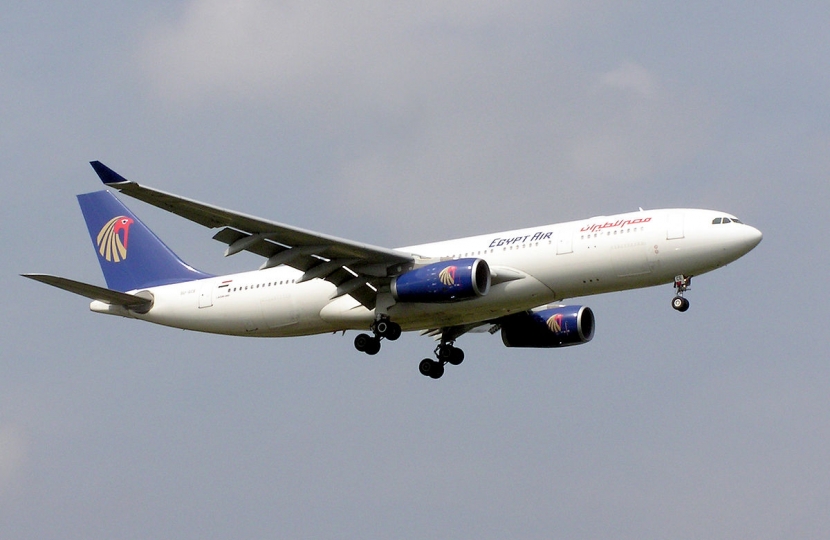
I know this is a really difficult time and things are changing very rapidly.
I have a lot of correspondence coming in at the moment on what to do if you are abroad. Here is the latest government advice, available here:
From 23rd March, the Foreign and Commonwealth Office advise that British people travelling abroad to return to the UK now, if commercial flights are still available. This advice was published on 23 March and takes effect immediately.
International travel is becoming very limited as air routes close, land borders close and new restrictions are put in place that prevent flights from leaving.
If you’re travelling abroad, you should:
- contact your airline or travel company now
- keep up-to-date with our travel advice pages. We are updating information on returning from the country you’re in as quickly as we can
We are working with airlines to keep routes open, and calling for international action to to keep routes open to enable British people can return home on commercial flights. We are also working around the clock to support those British travellers who are already finding difficulties to come back to the UK.
If you are a permanent resident overseas, you should stay and follow the advice of the local authorities in the country you live in.
Do not travel abroad unless it’s essential
The FCO advises British people against all non-essential travel worldwide. This advice took effect immediately on 17 March and applies initially for 30 days.
The COVID-19 pandemic has led to unprecedented international border closures and other restrictions. All countries may restrict travel without notice.
To change or cancel your travel plans, follow these steps:
- contact your airline, travel company, cruise line or other transport and accommodation providers
- get in touch with your insurance provider
- continue to follow the NHS coronavirus guidance
The FCO was already advising against all but essential travel or all travel to some areas or countries due to risks that do not relate to COVID-19. This advice remains in place. Check FCO travel advice pages for the latest information.
If you’re abroad and you want to return to the UK
Our travel advice has changed. If you are usually based in the UK, you should return to the UK now, if flights are still available.
Advice on how to return
- contact your airline, travel company or transport provider as soon as possible to book your travel
- if you have travel insurance, you should also contact your insurance company
- consider a range of options: you may need to travel to another country to get back to the UK. Check travel advice pages for the latest information on any travel restrictions that could affect your travel plans
- keep up-to-date with our travel advice, and in particular the ‘Return to the UK’ guidance for each country. Sign-up to email alerts to be notified if the situation changes
- check our social media accounts for where you are
Be prepared that your plans may need to change at short notice.
If you cannot return
The government is in contact with airlines, foreign governments and local authorities to ensure British people travelling abroad can return to the UK as soon as possible. If you’re unable to leave at this time, you should:
- follow the advice of local authorities, including local measures to help minimise your risk of exposure to coronavirus (COVID-19)
- find suitable accommodation
- keep up-to-date with our travel advice and the latest information from transport providers and local authorities on your departure options
- keep in regular contact with family and friends at home, so they know you are safe and well
You must follow the advice of local authorities. Your safety and security is the responsibility of the local authority where you are.
Quarantine while you are abroad
If the local authority where you are proposes to quarantine you for your own protection, you should follow their advice. When you are abroad, your safety and security is their responsibility.
If there are suspected cases of coronavirus where you are, you may need to remain in your hotel room or accommodation for 14 days, move to quarantine facilities, take tests for coronavirus and, if positive in some cases, be hospitalised abroad.
You should also contact your airline or travel company, and your insurance provider as soon as you can. We only organise assisted departure in exceptional circumstances.
If your visa is running out
Check the travel advice for the country you are in. If you have immigration enquiries, you need to contact either the local immigration authorities in the country or their UK-based embassy.
If your travel is essential
Prepare for your travel
If your travel is essential, follow our checklist before you travel:
- contact your airline, travel company, cruise line or other transport and accommodation providers to make sure you can still travel
- read the details of your travel insurance carefully, and check that you are covered, and contact your insurer if you are uncertain. You may need to consider a specialist policy
- make sure you can access money to cover emergencies and unexpected delays. Take more than one means of payment with you
- be prepared to follow the advice of local authorities abroad. Be ready to comply with local isolation or quarantine requirements, and to rely on the local health system
- make sure you have enough medication with you in case you are abroad longer than planned
- be prepared for logistical and financial disruption to your travel
- arrange extra support for family members, dependants or pets who may need care if you are abroad longer than planned
- check travel advice for your destination regularly and sign-up to email alerts
- visit this page regularly as it is constantly updated given the evolving situation overseas
If you are older, or if you have pre-existing medical conditions (such as asthma, diabetes, heart disease), you are more likely to become severely ill if you catch the virus. Check the NHS guidance before you travel.
Get travel insurance
If your travel is essential, make sure you have appropriate insurance for overseas travel, and purchase it as soon as you book your travel. You should check the detail of your travel insurance to see what it covers, and contact your insurance provider if you have any questions.
You may need to consider a specialist policy. It’s your responsibility to make sure you’re covered. Read our guidance on purchasing insurance.
The Association of British Insurers (ABI) has published information on the travel insurance implications of coronavirus.
Entry restrictions
Many countries and territories have introduced screening measures (temperature checks, health/travel questions, quarantine) and entry restrictions at border crossings and transport hubs.
If you have recently been in a country affected by the virus you may need to be quarantined, or you may not be allowed to enter or travel through a third country. If you decide to travel, contact the local immigration authorities or the embassy, high commission or consulate of the country you’re travelling to.
International freight transport
International freight transport (by air, ship, road and rail, including roll-on/roll-off transports) is an essential activity in the context of travel advice. Our advice against non-essential travel does not apply to this industry. Read the Department for Transport guidance for the freight transport industry.
If you’re concerned about friends or family overseas
If you are concerned about a friend or family member who is currently overseas, you can read the guidance on this page and our country-specific travel advice.
We strongly encourage any British person travelling or living overseas to sign up for email updates to travel advice. Your family member or friend can do this on each country-specific page. We cannot give any further updates or detail by phone.
For further information on the support we can, and cannot, provide, see our guidance on support for British nationals abroad.
Our travel advice and consular support
Foreign & Commonwealth Office (FCO) travel advice
Foreign & Commonwealth Office travel advice is constantly under review, so that it reflects our latest assessment of risks to British people. Find out more about how our travel advice works.
Consular help
We publish all our Travel Advice on GOV.UK. Our consular officers cannot provide any additional information by phone. Read more about the consular support we provide.

